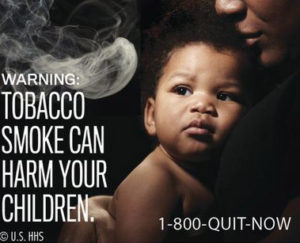Graphic cigarette labels could be effective at reducing smoking rates in American Indian/Alaska Natives (AI/AN) communities, according to research from the Brown School at Washington University in St. Louis.
At 36 percent, the rate of smoking in AI/AN communities is twice the national average. Smoking is the leading cause of preventable death in those communities.
Researchers, led by David Patterson Silver Wolf, associate professor at the Brown School, analyzed results from surveys of 220 AI/AN smokers, at-risk smokers and non-smokers who viewed graphic labels that contained images of physical harm as part of a larger study.

After viewing the images, participants said they were more likely to talk to friends and family members who smoke — conversations that can result in attempts to quit.
“Images with children and those showing graphic physical harms were most provoking,” Patterson said. “When participants saw these images, it triggered emotional reactions, which resulted in the likelihood of them speaking out to their peers about the harms of tobacco use.
“If AI/AN communities are interested in using visual deterrents to using tobacco, the images showing the physical consequences would be most impactful,” Patterson said.
The study, the first to explore the impact of labels on members of AI/AN communities, was published March 23 in the journal BMJ Open.
Co-authors are Molly Tovar, director of the Kathryn M. Buder Center for American Indian Studies; Matthew Kreuter, associate dean for public health at the Brown School and the Kahn Family Professor of Public Health; Kellie Thompson, research coordinator in the Brown School’s Center for Obesity Prevention and Policy Research; Jamie Ishcomer of the Buder Center; Charlene Caburnay, research assistant professor at the Brown School; and Sonia Boyum, data analyst at the Health Communication Research Laboratory.
Comments and respectful dialogue are encouraged, but content will be moderated. Please, no personal attacks, obscenity or profanity, selling of commercial products, or endorsements of political candidates or positions. We reserve the right to remove any inappropriate comments. We also cannot address individual medical concerns or provide medical advice in this forum.